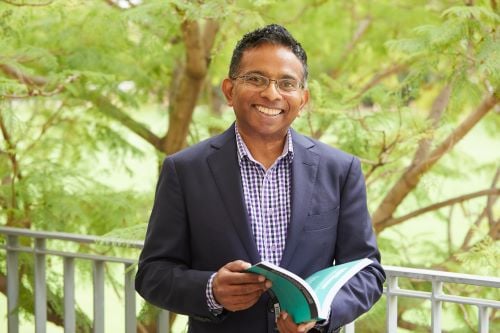

An established business advisor has called on insurance brokerages to actively disrupt themselves, saying it’s the only way they can guarantee long-term success in an uncertain world.
Speaking to Insurance Business, renowned futurist Gihan Perera (pictured above) said Australia is currently in the age of disruption, where entire industries are changing overnight – including broking.
“The basic model that has underpinned the industry for centuries ‒ actuarial science that assesses risk based on historical data ‒ is being overtaken by AI, predictive analytics, and personalised data,” he said. “These shift the balance of power from providers to customers.”
Perera pointed to new business models such as peer-to-peer, usage-based, and on-demand insurance as one major disrupter – alongside social media and AI which are being used for comparison shopping.
He also noted that the growth of internet-connected devices which leverage real-time data – both IoT and wearables – are also making waves in the long-established industry.
However, while traditional insurance brokerages now find themselves in a rapidly-changing environment, Perera says it is certainly possible for them to thrive – as long as they’re able to disrupt.
“Disruptive companies succeed because they have a bias for change and a bias for momentum,” says Perera, who has worked with the likes of Allianz, CQIB, AMP and AMP.
“A bias for change means training yourself not to accept the status quo, but always looking for something better,” he explains. “A bias for momentum means taking action fast to test ideas in the real world.”
Of course, the concept of disruption and future proofing can seem difficult to pin down or put into practice – but Perera says it’s actually more straight-forward than many people realise.
“The most important practice is to always focus on solving your clients’ problems. Ignore your products and services, and always ask; ‘What is their problem, and how can we best solve it for them?’” he says. “This is not always easy, because it often means letting go of what has worked in the past. But accept those as sunk costs that aren’t necessarily the best options for your future.”
For brokers who do want to protect their brokerage and ensure it remains relevant and successful well into the future, Perera says one of the most important skills to develop is foresight.
“There are two kinds of futures ‒ the kind you can see, because it’s already happening in another industry, another country, company, or another generation, and the kind you can’t see,” he says. “The skill of foresight means you explore both kinds of futures, identify some plausible scenarios, make informed decisions to take action fast, and remain flexible enough to test assumptions and change quickly.”
